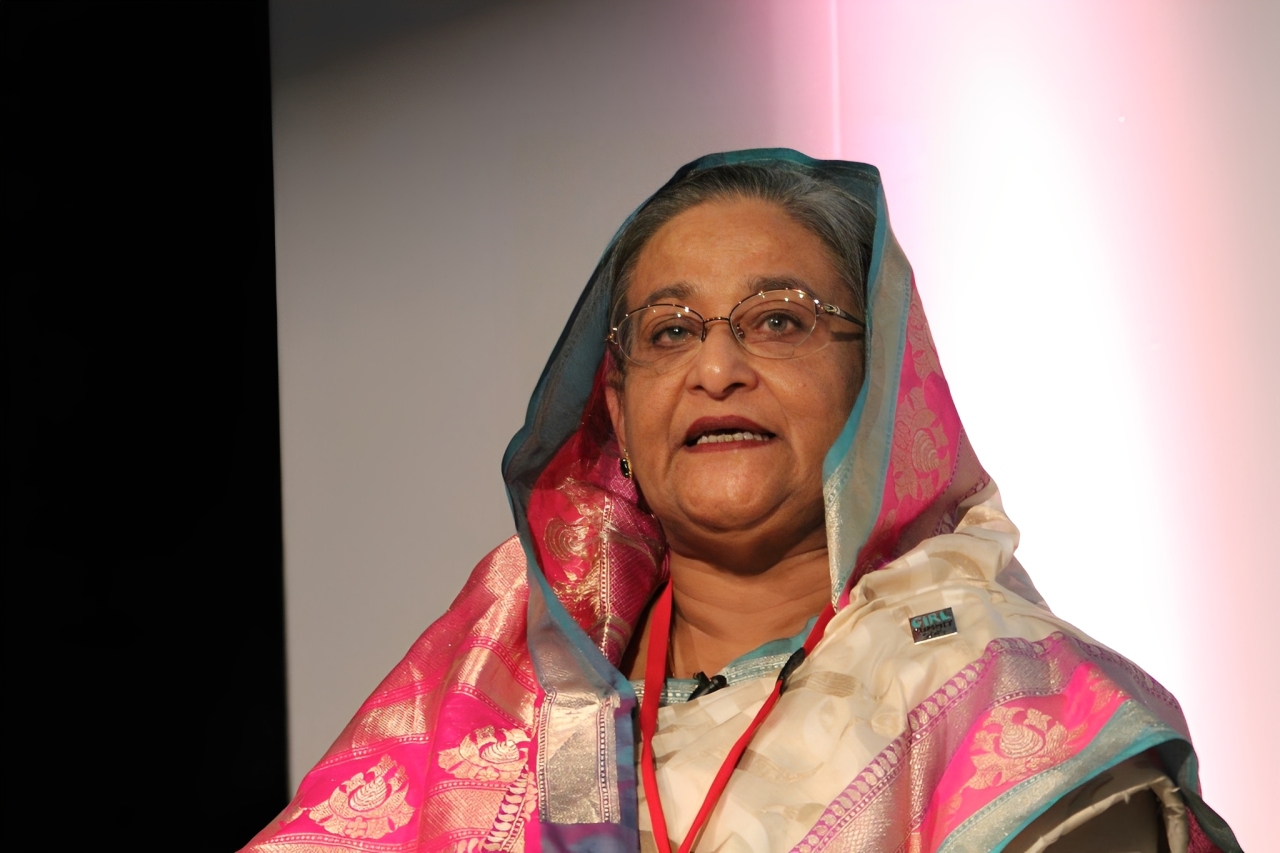
International Affairs Correspondent
A Bangladeshi war-crimes tribunal has sentenced former Prime Minister, Sheikh Hasina, to death in absentia. She was found guilty of crimes against humanity committed during last year’s mass uprising that toppled her government.
The Dhaka-based International Crimes Tribunal delivered the verdict under heavy security on November 17. Hasina, who fled to India in August 2024, was ruled to have borne command responsibility for widespread abuses during the demonstrations.

The International Crimes Tribunal (ICT) of Bangladesh, located in the Old High Court Building in Dhaka. (Credit: Ranadipam Basu/Wikimedia)
In its 453-page judgement, the three-member panel led by Justice Md Golam Mortuza Mozumder said Hasina acted as the “superior commander of all the atrocities.” The tribunal added that the offences had occurred “in her cool knowledge.”
It stated that “all the conditions of being a case of crimes against humanity were proved.” The case had been brought by the interim government that assumed power after the student-led revolt, which ended the Awami League’s 15-year rule.
Former Home Minister, Asaduzzaman Khan Kamal, also abroad, was sentenced to death. Former police chief Chowdhury Abdullah Al-Mamun received five years in prison after admitting involvement.

Former Home Minister, Asaduzzaman Khan Kamal (left), also abroad, was sentenced to death (Credit: The President’s Office, Maldives/wikimedia)
The court ordered the seizure of all property belonging to Hasina and Kamal. Chief prosecutor Mohammad Tajul Islam said victim compensation would be funded by these assets. He emphasised that the trial had been fully open, telling reporters: “The justice and verdict were presented as a transparent process, and anyone across the world could come and check.”
With Hasina still in India, Bangladesh has signalled its intention to seek her return. Islam said the government could “utilise the extradition treaty with India and execute the punishment, or can go to Interpol to bring Hasina to Bangladesh.”
Outside the court, relatives of those killed during the upheaval demanded swift enforcement, including Mir Snigdho, the twin brother of a slain protest coordinator, who said families “will only be pleased after Hasina is brought home from India and the verdict is executed.”
Hasina condemned the ruling from exile, calling it “biased and politically motivated.”
In a five-page statement, she said the death sentence was the interim government’s attempt to “nullify the Awami League as a political force.” She added: “I am not afraid to face my accusers in a proper tribunal where the evidence can be weighed and tested fairly.”
She also said she had challenged the authorities to bring their allegations before the International Criminal Court in The Hague. Hasina maintained she was “very proud of [her] government’s record on human rights and development.”
The interim authorities have levelled five charges against Hasina and her aides, including crimes against humanity. These relate to their response to the nationwide protests that left more than 1,400 people dead. The Foreign Ministry urged New Delhi to return Hasina and Kamal. It warned that “it would be a grave act of unfriendly behaviour and a travesty of justice for any other country to grant asylum to these individuals convicted of crimes against humanity.”

Bangladesh Nationalist Party Standing Committee member Salahuddin Ahmed welcomed the death sentence verdict against former PM Sheikh Hasina (Credit: Nahid Hossain/Wikimedia)
The ministry said India had an obligation under the bilateral extradition treaty to hand them over.
India’s Foreign Ministry said only that it had “noted the verdict,” adding that as a close neighbour, it remained committed to “peace, democracy, inclusion and stability” in Bangladesh and would “engage constructively with all stakeholders.”
Opposition groups that opposed Hasina’s rule welcomed the ruling. Salahuddin Ahmed of the Bangladesh Nationalist Party said, “justice has been established,” describing the judgment as a milestone and adding that although “this sentence is not enough considering the crimes,” it would serve as a warning “so that no government can become fascist in the future.”
Feature photo: Sheikh Hasina, former Prime Minister of Bangladesh, has been sentenced to death in absentia. A war crimes tribunal found her guilty of crimes against humanity during last year’s mass uprising that toppled her government. (Credit: Russell Watkins/DFID/CC)